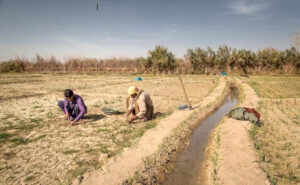KABUL (SW) – The Afghanistan Publishers Union say that in the last two years, the Ministry of Information and Culture has not renewed the licenses of book publishers and bookstores and they are operating without a legal cover.
Syed Ahmad Saeed, the official of the Afghanistan Publishers Union, wants the Ministry of Information and Culture to renew the license of book publishers and bookstores.
He says: “The time for renewing the licenses of book publications and bookstores has passed, and no one gives them licenses and their business is kind of illegal. Until the government and the Ministry of Information and Culture do not distribute licenses to them, the business without a legal cover.”
At the same time, a number of book publications and bookstores in the National Market in the “Pul Surkh” area of Kabul state that the decrease in reading culture and the increase in tax on books are among the major problems of publishers and booksellers. They say that the caretaker government should provide better conditions for publishing and selling books.
After the epidemic of Covid-19 in 2020, the activities of book publishers and bookstores in Afghanistan, especially in Kabul, have declined, and now, few people go to bookstores to buy books. This situation has caused a number of publications to face the risk of bankruptcy.
Nasser Maqsoodi, the manager of Maqsoodi publishing house, which has been operating in Afghanistan for two decades, says that due to the lack of sales of his books, he will close his publishing house and bookstore by the end of this month.
He adds: “Maqsoodi publishing house has been working in Kabul for two decades and our main problems are the problems of shortage and decrease in book sales in the market. We cannot survive any longer and we have no choice, except to close it.”
Also, Ali Kohestani, the publishing director of Mader Institute, which is active in the field of publishing and selling books, says that the Ministry of Information and Culture needs to cooperate with publishers and booksellers to prevent the fall of book publications.
He adds: “Our desire is to provide ease to the publishers and it should be established. Prevent the reduction of book sales and high costs. We pay to so many taxes, which is difficult for us.”
Officials in the Ministry of Information and Culture say that the technical problems of license distribution to publishers and booksellers have been resolved and the license distribution process will begin soon.
Hayatullah Mohajer Farahi, the deputy of publishing affairs at this ministry, says that they have plans to make it easier for publishers.
He adds: “Some technical problems have been solved and the distribution of licenses to publishers and booksellers will begin soon, and we have plans for more convenience, such as creating a special market for publishers and reducing taxes on it.”
According to the statistics of the Afghanistan Publishers Union, 100 book publications and 250 bookstores operate in Kabul, of which 30% have stopped operating in recent years, and the other 90% are facing the risk of bankruptcy.
ENDS






